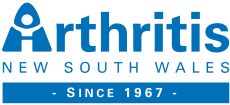What are the community education programs
For people living with a chronic health condition such as arthritis, the health system can seem impersonal and impractical. An inhibiting factor to patients feeling involved in their own health care is the prevailing medical model that sees the patient as a passive recipient of treatment and advice. The clinical nature of medical care doesn’t take sufficient account of how people live their lives or how they’d like to. The focus is on managing disease, not promoting well-being. Community-based education programs play an important role in promoting the effective self-management of chronic health conditions such as arthritis.
How can it help me
When delivered by a trusted organisation such as Arthritis NSW, there are multiple benefits for participants:
- a better understanding of their disease – the causes and affects
- knowledge about self-managements strategies
- skills and tips on how to implement self-management strategies
- opportunities for peer education and support
- ability to connect with the health-trained facilitator for further referral
- evidence-based and consumer friendly information resources for ongoing reference
- confidence and motivation to initiate beneficial lifestyle change.
Our In-house Education Series
The community-based education sessions delivered by Arthritis NSW maintain a focus on Living Well with Arthritis. Each session is adapted to the profile and needs of the audience, whether that be a retirement village, young people facing the challenges of juvenile arthritis, or a local special interest group.
Topics
The suite of presentations listed below is constantly upgraded to reflect the most current evidence and best practice management strategies for arthritis.
- Managing Arthritis gives a broader understanding of the many management strategies that can be successfully employed to manage arthritis and maintain a good quality of life.
- Nutrition & Arthritis provides an understanding of the contribution nutrition can play in managing arthritis effectively. This encompasses discussion on the five food groups and portion considerations, the importance of weight management for arthritic management and practical tips for healthy eating.
- Exercise, Physical Activity & Arthritis provides an understanding of the significant role exercise plays in managing arthritis. This presentation offers insight into the different types of exercise that can benefit people living with arthritis and recommendations and guidance on who to see and how to get started.
- Pain Management & Arthritis provides an understanding of how different pain-management strategies can help with the pain associated with arthritis. This involves explaining the mechanisms of pain and how it is experienced with arthritis. It also educates the participant on the various pain management strategies (both pharmacological and non-pharmacological) that can be employed to help live with pain.
- Complementary Medicines and Alternative Approaches provides information on the kinds of complementary medicines and therapies that are associated with arthritis. It highlights some important considerations when dealing with complimentary medicines and alternative approaches (CAMS) with respect to the evidence for their use, efficacy and safety.
- Upper Limb Osteoarthritis Management discusses arthritis of the upper limbs, including the anatomy and function of the joints of the upper limb most affected by arthritis, including the hand/wrist and shoulder. It explains the common causes of arthritic change to the joint and exercise that may help to maintain or restore function and reduce pain.
- Osteoporosis explains the important functions of healthy bones as well as the risk factors associated with the development of Osteoporosis. It provides insight into the most significant management strategies in addition to medications and surgical treatment.
- Falls Prevention: Staying on your feet builds awareness of the major risk factors for falls and how to avoid them. Covers exercise for improved balance, and other tips to prevent falls around the home.
Bookings
Organisations wishing to book either one or a series community education sessions on behalf of their members, staff or community group should complete the online Expression of Interest form below, or call us on 02 9857 3300.
Please take note of the following course details and requirements:
- Details: The full series of ANSW Community Education Sessions comprises eight topics (as outlined below) with each topic delivered in a one-hour session. Topics can be delivered singularly or as a package over a six to twelve month period.
- Audience numbers: a minimum of 10 and maximum of 35 people per session is requested.
- Booking lead-time: Sessions can only be booked with a minimum 4-week notice period.
- Venue: Organisations are to provide a suitably sized and equipped venue for the education sessions.
- Payment: Full payment is required in advance of each session.

